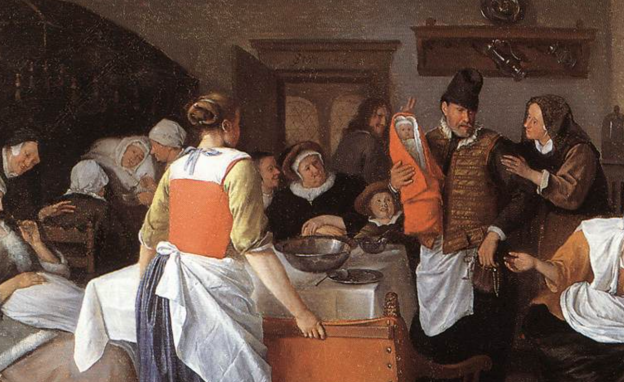Our culture talks a good game about protecting the dignity of people, but its practice leaves a lot to be desired. If the value of a society rests in how well it treats the vulnerable, then we fall way short. While we talk of social justice, the reality is often something different.
True social justice is about protecting a just social order, based on a sacred order. God’s laws given to Israel were focused on precisely that. In this passage, God provides rules which protect the social order, the social fabric, and those who exercised different roles in society. Those principles should continue to motivate us, God’s people, today.
The first provision to protect the social order focused on protecting young women. When a young man seduced a young woman into a consensual sexual relationship, the Law required him to take responsibility for his actions and marry her (v.16). He was also required to pay a “bride price”, which was a sum intended to protect the woman in case of his death (there was no widow’s benefit) or a marital breakdown.
If the man was a scoundrel and the father utterly refused to allow the marriage, then he still had to pay the “bride price”, as a penalty for his behaviour and because in their society, a seduced but unmarried woman’s marriage opportunities were more restricted (v.17).
Secondly, this passage provides laws protecting the social fabric. Witchcraft, beastiality, and idolatry were explicitly banned in Israel, on penalty of death (vv.18-20). These activities were implicitly or explicitly associated with worship of false gods, and attacked the basic order of Creation and the right of God their covenant king to exclusive worship rights. When Israelite society went after false idols, disaster usually fell on their society (eg, Judges).
Thirdly, this passage provides laws protecting the weak from harm and exploitation. Believers were not to harm the “sojourner” or “any widow or fatherless child” (vv.21-2). Immigrants (or “temporary visa holders”), or those who had lost the breadwinner of the family were in vulnerable economic situations.
These folk relied on the goodwill of society, and were prone to exploitation. God warned that if Israelites did that to the vulnerable, their own dependents would find themselves in the same vulnerable place (vv.23-4).
Another provision to protect the vulnerable of society existed in their credit laws. The first aspect of this was to require loans without interest (v.25). Loans were usually taken because of a difficult financial position (eg, a loss of harvest or income) and putting interest on these people just dug them further into debt.
The second aspect of their credit laws was a limit on what could be taken as collateral. For some poor, the only thing they had left was their cloak in which they could keep warm and sleep.
If the cloak was taken as security, God expected its return (vv.26-7). You could not strip a man of his dignity, even his clothes and his bed. Anyone who did so could expect God to take up the poor man’s cause (v.27).
The fourth way in which social order was protected under God’s Law was in protecting positions of privilege from disrespect. God’s people were not to disrespect God or the rulers he appointed over them (v.28). They were to show honour.
This extended to the respect shown to the highest person of privilege, God! They were not to be stingy with giving back to God from what he gave them (v.29), nor to the firstborn son or firstborn oxen and sheep (vv.29-30). These were to be devoted to God, and in the case of sons ransomed through a cash payment to the Temple (Num. 18:15-16).
Likewise, they were to keep their ceremonially holy status by not eating meat from animals killed by wild animals (v.31). Showing honour by behaving in ways which God honoured, and giving him his due, protected the social order from disintegration through judgement because of God’s punishment.
Underlying all these laws is respect for God, and respect for those made in God’s image. A society which is stable, where God is honoured and respected, is a society where true justice can flourish. And in that society, true justice occurs when society protects those of whom someone may take advantage.
While this may not be the culture of the society we live in, or at least seriously lacking in a few places, the respect for each other and for God reflected in these laws should be something that we see in the Church.
The Church should be a place where people take responsibility for their actions, and seek to preserve the chastity and purity of others. A place where people worship God alone, and give him his due. A place where the poor and disadvantaged are welcomed and cared for, not exploited or deprived of even basic needs for our own gain.
A place where all these things happen may be a beacon of Gospel light in a world full of too much social injustice.


